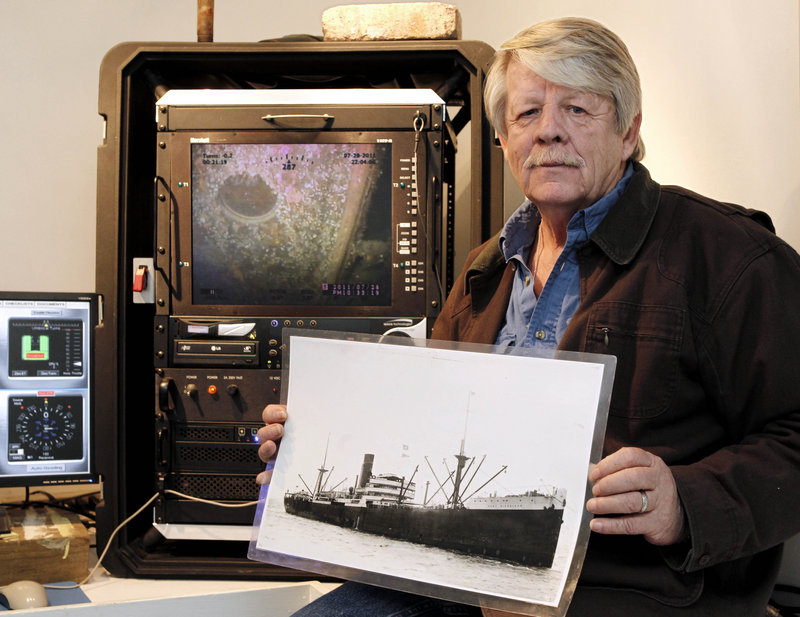The principal researcher for failed treasure hunter Greg Brooks of Gorham conceded to a federal investigator that the two carried out a “scheme to defraud investors” who were bankrolling the salvage of a shipwreck off Cape Cod.
Edward Michaud of Framingham, Massachusetts, said Brooks “pressured him to alter documents based on pressure that Sea Hunters (Brooks’ salvage company) was facing with potential investors who were interested in the Port Nicholson.”
Those revelations were contained in an affidavit unsealed Thursday that was filed in U.S. District Court in December seeking a warrant to search Brooks’ home and business on Gray Road in Gorham.
Although Brooks has not been charged with a crime, the investigator, William Johnston of the National Archives and Records Administration’s Office of Inspector General, wrote that probable cause exists that Brooks and his company “committed a criminal offense,” specifically wire fraud, false statements and forgery of ship’s papers.
The search of Brooks’ property, including documents and computers, has already happened. Any charges against Brooks would come in the form of a criminal complaint or grand jury indictment. He also could settle before charges are filed.
The U.S. Attorney’s Office declined Thursday to comment on the case.
Brooks in April forfeited salvage rights to the Port Nicholson, a cargo ship that sank in 1942. That ended a nearly seven-year odyssey that produced only disappointment, despite Brooks’ continued claims that $3 billion worth of platinum and possibly gold and diamonds were buried in the shipwreck.
In the past two years, as investors and others have challenged the validity of Brooks’ assertions, the case has shifted away from whether Brooks should retain salvage rights to whether he engaged in criminal behavior.
The affidavit is the most detailed document made public so far that alleges Brooks intentionally misled investors.
Brooks, who has been a treasure hunter for three decades, first was awarded salvage rights to the Port Nicholson in 2008. He and his crew searched the wreck for several years but never found anything. In periodic updates filed with the court, Brooks routinely blamed bad weather and equipment failures.
In 2012, Brooks began running out of investor money after spending millions with nothing to show for it. That’s when he began saying he had documented proof that the Port Nicholson contained platinum.
Over the next year, Brooks filed information with the court in support of those claims, drawing new investors to continue the salvage.
But those documents turned out to be forged, specifically a cargo document filed with the National Archives that had the word “bullion” added.
Michaud told the investigator that, under Brooks’ direction, he “took the altered documents falsely representing that the Port Nicholson cargo contained bullion, platinum and gold to NARA and had them stamped with a NARA seal for the purpose of falsely representing them to be ‘original NARA records.’ ”
In November, when Brooks admitted in a sworn affidavit that documents he submitted as proof of treasure were not authentic, he said he had no knowledge until only a few weeks prior, when Michaud came clean.
Michaud, however, refutes that claim, according to the unsealed affidavit. The longtime researcher said it was Brooks who orchestrated the document forgery. Michaud also said he would be willing to provide email and other correspondence to support that claim.
The affidavit details a Nov. 23 conversation between Michaud and Brooks in a parking lot in South Portland that was recorded and appears to back up Michaud’s version of events.
In the recording, Michaud talked several times about lying for Brooks, and Brooks never challenged him.
Brooks also told Michaud that Brooks was “in over his head … deep,” and should never have filed fake documents with the court.
Send questions/comments to the editors.




Comments are no longer available on this story